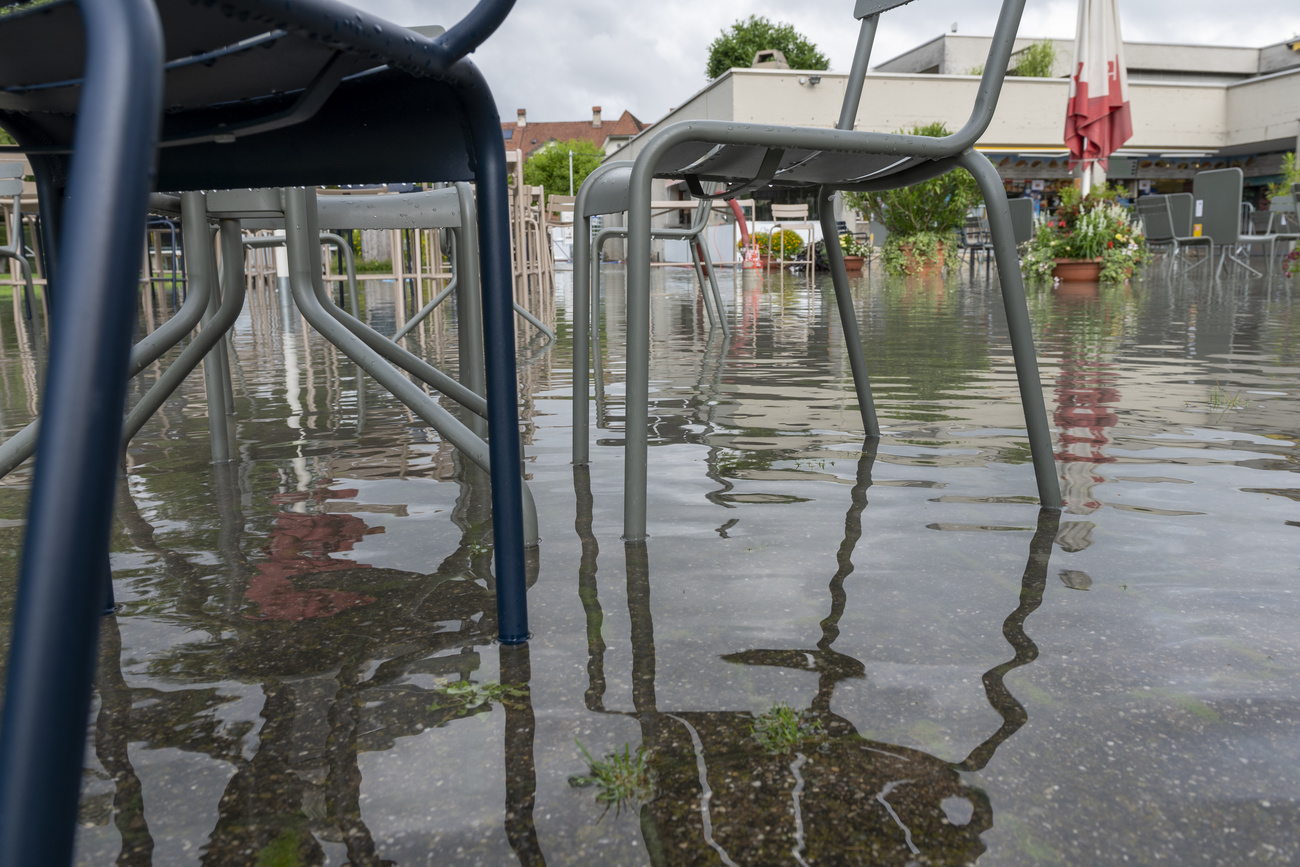
Flood alerts remain in some parts of Switzerland

After the intense rainfall in Switzerland, the flood situation has partially calmed down in some parts of the country on Thursday. In other areas, water levels continue to rise, leading to a a risk of flooding, particularly on the southern shore of Lake Neuchâtel.
The critical threshold is expected there on Saturday morning. The canton Vaud authorities are preparing for floods. Emergency services installed sandbags and other water barriers.
In the canton of Bern, water levels remained at a high level. The level of Lake Biel was 430.41 metres on Thursday morning, six centimetres above the flood limit.
The water level of the Rhine in Basel fell slightly. However, a partial closure of shipping is likely to last until at least Friday evening. In Sachseln OW the situation eased somewhat. No other households had to be evacuated.
Because of the constant rain in Valais, both tunnels of the Lötschberg base tunnel were closed in the morning. Water entered the tunnel between Ferden VS and St German VS.
This news story has been written and carefully fact-checked by an external editorial team. At SWI swissinfo.ch we select the most relevant news for an international audience and use automatic translation tools such as DeepL to translate it into English. Providing you with automatically translated news gives us the time to write more in-depth articles. You can find them here.
If you want to know more about how we work, have a look here, and if you have feedback on this news story please write to english@swissinfo.ch.

In compliance with the JTI standards
More: SWI swissinfo.ch certified by the Journalism Trust Initiative





























You can find an overview of ongoing debates with our journalists here . Please join us!
If you want to start a conversation about a topic raised in this article or want to report factual errors, email us at english@swissinfo.ch.